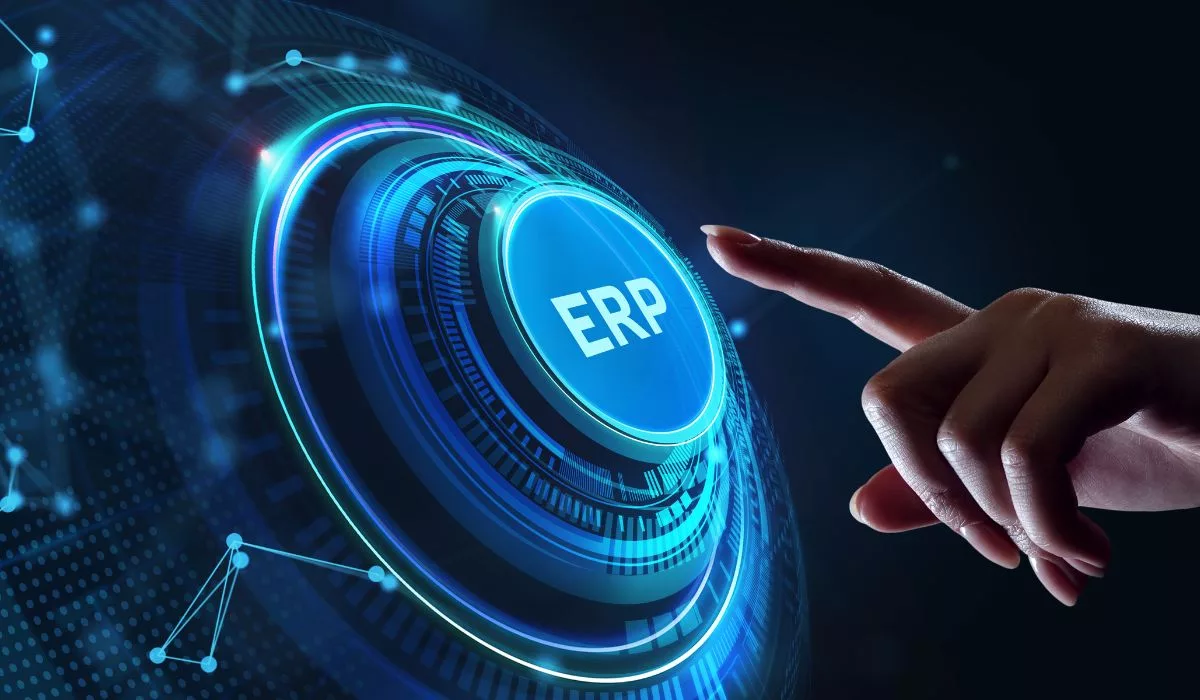Enterprise resource planning (ERP) is a business management technology that has become a mainstay among companies across several industries. ERP systems are mainly used to consolidate company data and processes onto a single, secure digital platform, making it easy for teams to communicate, collaborate, and share information across an entire company. Businesses also employ ERPs for automating basic tasks, which frees up human labor for more complex work and boosts operational efficiency overall.
ERP systems excel at linking up discrete business processes and creating efficient workflows. In today’s extremely fast-paced, unpredictable business environment, however, remaining competitive requires companies to do even more than just function like well-oiled machines. They should also be able to gather high-quality data and generate detailed business insights in real-time, as this information is key to making smarter decisions and developing future-focused strategies.
That’s where business intelligence (BI) technology comes in. BI software offers companies a complete, 360-degree view of their operations to help leaders make more data-driven business decisions. In practice, the software generates customer-facing IT systems, reports, dashboards, and other similar outputs by pulling information from a centralized database. It also performs detailed, thorough analyses of company data to help users optimize business operations. Through these functions, BI programs help companies operate more strategically, leverage their competitive advantages, and drive profitability.
You may also like Top ERP Software Development Companies
Read on to learn more about the connections between ERP and BI software, and how these programs can help enhance your business operations.
Key Differences between BI and ERP
ERP and BI overlap in many areas, but they aren’t identical. The primary purpose of an ERP system is to manage company processes, such as inventory, financials, manufacturing, sales, and many more. By integrating and unifying these processes, ERP systems eliminate data silos and enhance operational efficiency. BI software, meanwhile, enables businesses to do even more with their data. Its various functions help companies organize and interpret the information at their disposal, which ultimately leads to the generation of high-quality business insights.
BI and ERP software also support business decision-making at different levels. ERP systems offer valuable insight into operations, as the system enables companies to get a precise look at how key business functions are presently performing. BI software analyzes this information and other companywide data, allowing companies to thoroughly examine their performance metrics and identify key trends. What they learn from these processes can, in turn, help fine-tune business strategy both at a high level and at ground level.
To illustrate more specifically, a BI system can calculate the precise cost-savings companies can expect from implementing real-time inventory management or analyze the ROI of new marketing schemes. With these unique capabilities, BI helps companies enhance their performance and utilize their time and resources more efficiently.
Also read Benefits of ERP System
The Case for Integrating ERP and BI
Businesses have always needed to leverage their data and analytical capabilities to make sound strategic decisions. However, businesses today operate in a more volatile, unpredictable environment than ever before. Rapidly changing market trends, customer expectations, regulatory mandates, and other conditions require contemporary companies to gather unprecedentedly high volumes of both structured and unstructured data. And to use this data efficiently, companies need a reliable way to stockpile, manage, and analyze it at scale.
Software systems that integrate both ERP and BI can help companies take their data management to the high level required for success in today’s world. These all-in-one systems are powerful enough to consolidate millions of data points at once, distilling them into easily comprehensible, actionable insights.
ERP-BI integration is especially advantageous for firms that wish to shift their focus away from historical reporting toward a forward-thinking, predictive approach more suitable for today’s digital economy. Such companies recognize the value of swiftly recognizing trends, predicting market changes, and making future-focused plans—and they know that integration can help them get there.
Also read: Disadvantages of ERP
How Business Intelligence Can Enhance ERP Systems
BI software can enhance ERP systems by converting raw data into more visual forms, which can then be used for analysis and decision-making. The benefits don’t stop there, however. The following are a few more key advantages of ERP-BI integration:
- Predictive Functions – As mentioned above, modern businesses need more than traditional retrospective reporting to stay competitive. ERPs provide a solid foundation of historical data, while BI creates opportunities for more predictive modeling and analysis. Working together, ERP and BI thus offer companies a comprehensive picture of past performance, present conditions, and possible future outcomes.
- Real-Time Strategy – ERP and BI systems work in harmony to deliver organized information and analyses in real-time. This enables companies to not only make better business decisions but also to speed up the decision-making process itself.
- Improved Efficiency – By integrating BI within their ERP systems, companies should have no problem managing and analyzing huge data sets pulled from multiple sources. The speed at which these integrated systems operate enhances business agility and makes companies more responsive.
- Customization Capabilities – While the various teams within a company may be working toward common business objectives, individual stakeholders will also have unique data analysis requirements. Fortunately, integrated BI-ERP systems are just as useful at the departmental level as they are for companywide activities, allowing teams to create the dashboards and reports required to meet their goals.
The best ERP systems organize company operations and data and enable smooth day-to-day functioning. BI systems, meanwhile, utilize their analytical capabilities to convert raw data into useful business insights. Integrated ERP-BI solutions bring these critical functions together to help organizations strategize more intelligently, improve their business oversight, and maintain their competitive advantage.










Leave a Reply